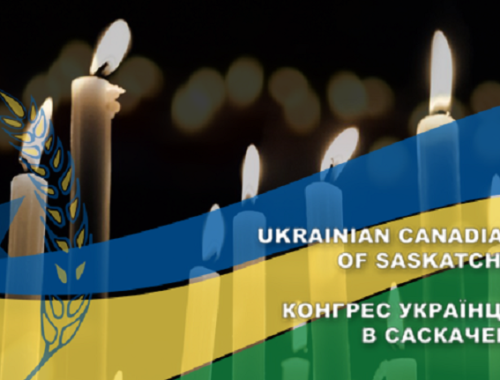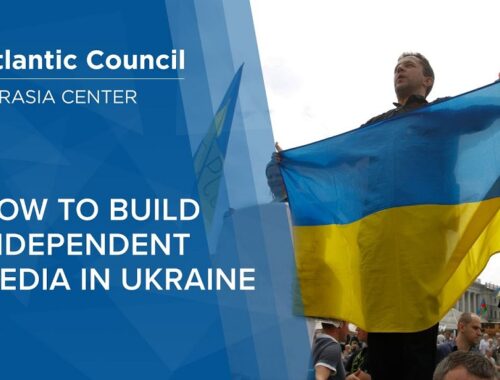
Carleton University pays tribute to Oleh Havrylyshyn
Carleton University in Ottawa marked the first anniversary of Dr. Oleh Havrylyshyn ’s passing by hosting a roundtable on his most recent works.
“I was absolutely delighted to discover how warm and willing to share his knowledge he was,” said Dr. Elodie Douarin during the roundtable, November 25. “Working with him was an absolute honor and absolute pleasure.”
The Institute of European, Russian, and Eurasian Studies (EURUS) at Carleton University on November 25 hosted a roundtable titled “Understanding post-communist transitions in Eastern Europe: Insights from Oleh Havrylyshyn’s work”.
Dr. Oleh Havrylyshyn was a leading expert on international economics, development, and the transition process in Central and Eastern Europe, focusing on Ukraine.
His prolific scholarly career was enriched by his important role in public life, where he held numerous advisory and consultative positions with government agencies and international organizations.
“He always made highly engaging contributions to our discussions. And I also observed that he tried to encourage and mentor young scholars, namely our students whenever they made presentations or interventions.”
“One of the goals today is to continue that process,” she said.
Dr. Havrylyshyn joined EURUS as an Adjunct Research Professor in 2018. He passed away on September 20, 2020.
“This was for us too short a time to have known him. But we’re gathering together today to honor his achievements and to discuss insights his recent work offers by focusing on two of his most recent publications,” said Professor Joan DeBardeleben, the Associate Director of EURUS.
“I personally was highly impressed by him, in so many regards,” DeBardeleben said. “He exhibited a kind heart and generous spirit in his personal interactions.”
Professor Crina Viju-Miljusevic, EURUS Director, said that Havrylyshyn always accepted the invitation to come in and talk to her students.
“The students always found his interventions extremely helpful, and they always loved to have him there,” Viju-Miljusevic said.
The two scholars discussed two of Havrylyshyn’s most recent books:
- Present at the Transition: An Inside Look at the Role of History, Politics, and Personalities in Post-Communist Countries
- The Palgrave Handbook of Comparative Economics
Viju-Miljusevic said that Present at the Transition provides an updated view of the transition process in post-communist regions using 30 years of data and offers a highly comprehensive perspective on economic transition.
“It provides clear definitions, interpretations of measurements/concepts that are the base of divergent views on transition,” she said. “And (it) adds to the economies of transition literature a novel question of why countries follow different speeds of reform by analyzing the policy process, and especially by focusing on the role of leadership for political leadership.”
Present at the Transition draws not only on Havrylyshyn’s extensive and deep knowledge of scholarly debates about post-communist transitions but also on his personal experience and knowledge as an expert and a participant in those events.
“Present at the Transition is a book that only Oleh could have written: it builds on his extensive and varied experience as an academic, a policymaker and adviser,” Douarin said.
Havrylyshyn proposes a compelling narrative based on his extensive knowledge of the literature and his personal experience of the process.
He presents a comprehensive overview of the transition from authoritarian political regimes with centrally planned economies to more democratic and market-oriented economies in the post-communist world, with nuance and precision, while peppering the text with anecdotes to liven up and shed additional light on the points being made.
“I find that the book is accessible to all audiences, regardless of the economics background,” Viju-Miljusevic said. “It’s easy to read and engage with, it’s highly comprehensive and based on a wealth of empirical evidence.”
Douarin said that Present at the Transition wasn’t meant to be Havrylyshyn’s last book.
“He was full of projects, wanting to return to his work on gender roles, curious to explore the possible impact of COVID-19 in the region and hopeful and anxious to see what the protest in Belarus would lead to,” she said.
“But it is a fitting legacy to his work on transition and a great testimony of his experience and contribution to the field,” she said.
This article is written under the Local Journalism Initiative agreement
Kateryna Bandura for New Pathway – Ukrainian News
Follow me on social media!You May Also Like

Atlantic Council addresses Russian aggression
December 28, 2021
UCC Saskatchewan presents 2020 annual report
November 24, 2021

